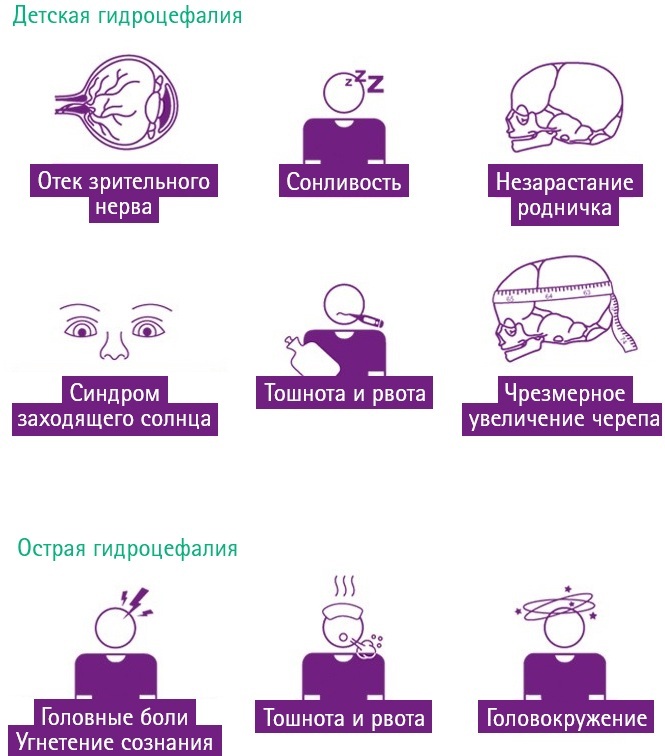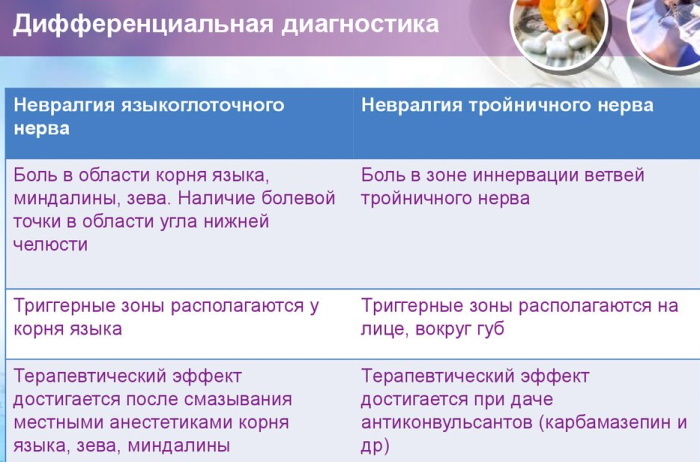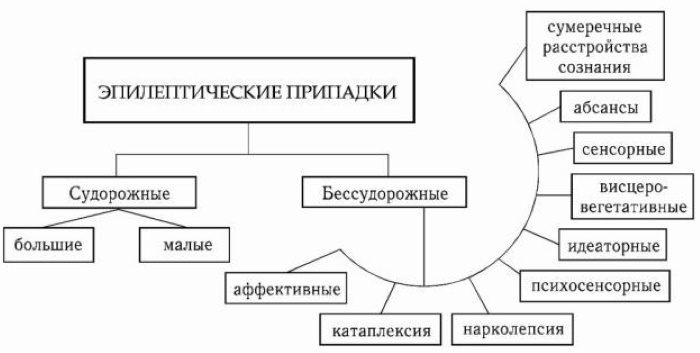GENERAL
 To understand what a sleep disorder, such as insomnia, it is necessary to understand the physiology of sleep.
To understand what a sleep disorder, such as insomnia, it is necessary to understand the physiology of sleep.
The so-called "sleep center" is located in the hypothalamus. Representing his neurons cells produce brake mediator - gamma-aminobutyric acid (plays a role in the occurrence of slow-wave sleep). Other biologically active substances, taking part in the processes of sleep - is acetylcholine (a neurotransmitter REM sleep), adenosine, melatonin (produced in the dark), serotonin, prostaglandins.
During the sleep phase of two isolated (fast and slow wave sleep), in the slow phase - 4 stages. They all have a specific EEG pattern, and physiological responses.
It is believed that the first (fast) sleep phase takes place during the processing of the received information wakefulness. Its distinguishing feature is the rapid eye movement, its duration - from 10 to 15-30 minutes. It occurs palpitations, respiratory rate, various autonomic responses, limb motion, muscle movement. It is in this phase a person sees the dream.
In the phase of slow wave sleep decreases the intensity of metabolic processes, slows respiration, brain activity, lowers blood pressure, muscle tone, reduction processes occur in body.
The dream begins with a very short first stage of non-REM sleep. Man easily awakened during this stage and can assert that no sleep at all. The combination of the two phases is called a cycle, it has a duration of 90-100 minutes. Sleep of normal duration comprises 4-6 such cycles.
Now, knowing what insomnia, its physiological and biochemical bases, you can go to the causes and treatment of insomnia.
CAUSES
Various factors leading to disruption of the alternation and duration of sleep phases and cause insomnia. They can be both external and internal (various diseases and pathological conditions of the organism).
The main causes of insomnia:
- the impact of external stimuli (noise, lighting, uncomfortable pillow or bed, a cold or a stuffy room, a new place to stay);
- stress, anxiety, feelings;
- psycho-emotional excitement or physical exhaustion, especially shortly before bedtime;
- disorders of circadian rhythm (sleep-wake periods) due to mode change, shift-work (night shift), time zone change;
- abuse of alcohol, caffeinated beverages and foods, smoking;
- any diseases accompanied by pain or other uncomfortable sensations (dyspnea, cough, palpitations, frequent urination, etc.);
- the use of several medications (stimulants; Some antidepressants (serotonin reuptake inhibitors); corticosteroids; diuretics; agents acting on the α- and β-adrenergic receptors; analgesics and respiratory medications that contain caffeine, ephedrine, theophylline; narcotic analgesics);
- frequent reception of hypnotics, sedatives, tranquilizers, especially when you try to cancel;
- endocrine and hormone disorders (hyper-and hypothyroidism, diabetes, menopause, premenstrual syndrome and hypothalamic, pregnancy);
- mental illness (depression, schizophrenia, affective disorders, manic-depressive psychosis);
- most diseases of the central nervous system that affects the brain (tumor injury, atherosclerosis, multiple sclerosis, encephalopathy, Parkinson's disease, stroke, Alzheimer's disease etc.);
- respiratory disorders during sleep (lung disease, cardiovascular system and upper respiratory tract, as well as sleep apnea);
- restless legs syndrome;
- a number of systemic diseases, intoxication of various genesis, fever.
In addition to the above, the role played by genetic predisposition and age factors. Most often, insomnia affects women of middle age and older people. It should be borne in mind that the need for sleep decreases with age, and a 5-6 hour duration of sleep in the elderly is not necessarily insomnia.
The peculiarity of the modern world is that the main cause of insomnia is stress of everyday life, a huge amount of information that must be analyzed, to assimilate.
CLASSIFICATION
In the classification of insomnia is taken into account its duration, according to which emit these types of insomnia:
- episodic - lasts from 1-2 to several days, usually because of short stimuli (change of time zone, stress, mode change, pain);
- short - duration of more than three weeks;
- chronic - from three weeks or more, as a result of serious disorders or chronic diseases.
SYMPTOMS
Clinical symptoms of insomnia depends on its type. There are a number of features in various diseases.
Types of insomnia:

- Due to the complexity of sleep - it occurs most often. Normally the process takes about 10-15 minutes sleep, insomnia - 1-2 or more hours. Although a person is tired, want to sleep, his brain activity ceases - considering the problems, solves problems. The onset of sleep often followed or accompanied by unpleasant nightmares. The reason for such disorders - stress and mental fatigue.
- Early awakening - after a few hours of sleep a person wakes up, and usually can not sleep. Because of this afternoon there drowsiness, fatigue. If such awakening occur regularly, you should see a doctor. The reason may be cerebral atherosclerosis, and hormonal disorders.
- Changes in sleep quality (sleep with frequent awakenings, superficial, restless, prevent the slightest stimuli). Increases the duration of REM sleep, and decreases slow. Man seems to be the appropriate number of hours of sleep, but feel not enough sleep, in some cases, it seems, did not sleep at all, and lay with her eyes closed.
In rare cases, insomnia special clinical manifestations will be, except for daytime sleepiness, absent-mindedness, a slight decline of memory, irritability.
In chronic insomnia nervous system deteriorates until psychosis, hallucinations, heavier during concomitant diseases, immunity decreases, there is a persistent memory impairment, can develop diabetes, obesity, hypertension disease, autonomic dysfunction (palpitations, sweating, trembling of fingers), poor exercise tolerance, reduced body temperature.
Trouble falling asleep exacerbate anxiety and anxiety, in turn, increases the insomnia - is formed by the "vicious circle".
DIAGNOSTICS
Diagnosis of insomnia is based on a survey of patient detection of diseases that may be causing the problem, and the direct sleep study using polysomnography.
Polysomnography - Sleep method of analysis, which captures many physiological parameters, while the person is asleep, staying in the most comfortable, close to the natural conditions.
Polysomnography records:
- Bioelectric activity of the brain. Implemented using electroencephalography (EEG). It allows us to estimate the duration of the phases and stages of sleep due to the presence of specific for each EEG rhythms.
- Heart activity - ECG.
- Eye movement (characteristic of REM sleep).
- Changes in muscle tone - using electromyography with the leg muscles and chin, as is typical for the fast phase.
- Blood oxygen saturation degree - finger oximeter is put on the test.
- The process of breathing - volume and respiratory rate, measuring the volume of air that passes through the mouth and nose.
The combination of these parameters makes it possible to diagnose not only insomnia, but other sleep disorders.
TREATMENT
The methods by which treatment is carried insomnia is separated into non-drug, therapeutic and drug.
In mild insomnia usually sufficient non-drug methods, and herbal medicine.
Strong demands insomnia combined therapies typically using hypnotics.
Non-drug treatments for insomnia:

- Compliance with sleep and wakefulness: go to bed and wake up at about the same time, to avoid daytime sleep (even in the presence of sleepiness).
- Exclude or limit the consumption of coffee, caffeine-containing products (Pepsi-cola, tea, chocolate) and medicines. 1-2 cups of coffee in the morning, most likely, will have no impact on nocturnal sleep.
- Avoid drinking alcohol, stop smoking.
- Regular exercise, but not earlier than 3-6 hours before bedtime.
- Airing of the bedroom before going to bed, to observe the temperature. The optimum temperature in the bedroom - 18-19 degrees. Excessive cold as heat, impair sleep, contribute to insomnia.
- Using the bedroom and the bed only for sleeping. Limit the time in bed without sleep (for example, after waking up) up to 15-20 minutes. Environment also plays a role in the bedroom: no unnecessary items, clutter, color range (walls, ceilings) - calm nervous system contribute to the green, blue, yellow.
- Comfortable mattress and pillows.
- Remove the extra light sources, because it is produced in the darkness of sleep hormone - melatonin. If this is not possible, use a special bandage on the eye. It plays the role of even a weak light from a computer monitor, a mobile phone, as the dominant variety in it blue body perceives as a signal to the come morning.
- If you can not provide the noise during sleep, use earplugs.
- Last meal - at least 2-3 hours before bedtime. To limit fatty foods and light carbohydrates (sweets, pastries).
- Counteracts stress, adequate rest.
- If you can not fall asleep, do not lie in bed without sleep, and get up, do some chores and through time to try again. Do not force yourself to sleep.
- Aromatherapy, listening to the quiet, soft music before bedtime. Suitable essential oils - lavender, ylang-ylang, tea tree, mandarin, chamomile, lime, use them in the form of aromatic lamps and candles, special aromapodushechek.
- Relaxing massage, bath.
Methods of psychotherapy:
- Cognitive-behavioral therapy: working with thoughts, feelings, actions that hinder full sleep.
- Working with a psychologist.
- Relaxation exercises.
- Gestalt therapy.
Drug therapy:
- Herbal, Supplements - either in liquid or in tablet form, containing herbs such as valerian, motherwort, hops, peppermint. Used in the treatment of mild insomnia. This also can be attributed to homeopathic complexes.
- Nootropic drugs (drugs that enhance brain function and nutrition) with a calming effect, which include gamma-aminobutyric acid, glycine.
- Just sleeping. It is recommended to use short courses (less than 1 month) or occasionally, as over time develops addictive and other complications.
- Tranquilizers are used to treat these causes of insomnia such as anxiety.
- Some types of antidepressants with sedative and antipsychotic drugs.
- The modern trend in the treatment of insomnia are drugs pregabalin - and it has anti-anxiety and sedative effect, wherein the effect on neuropathic pain syndromes origin and caused by the abuse of conventional analgesics.
insomnia treatment is carried out with the assistance of a neurologist, psychotherapist, psychiatrist, a sleep. Do not forget about the need for treatment of diseases and conditions that cause insomnia.
COMPLICATIONS
Complications of insomnia are both associated with the prolonged absence of normal sleep, and with the side effects of drugs.
The most frequent complications of insomnia:
- Impaired memory, concentration, confusion, irritability.
- The development of obesity, diabetes, diseases of the gastrointestinal tract, cardiovascular system.
- Premature aging of the organism.
- Reducing the body's defenses, susceptibility to infections and other adverse factors.
- With long-term lack of sleep mental disorders develop (hallucinations, psychosis), possibly fatal.
- Side effects of some hypnotics, especially for chronic administration: addictive, low immunity, the development of dementia, depression, cancer.
See also: Insomnia during pregnancy
PREVENTION
Easier to prevent insomnia than a pound of cure. Especially, preventive measures are useful for the whole organism.
Preventive measures that prevent insomnia:

- Counteracts stress.
- Falling asleep and waking up around the same time. Avoiding night shifts and other violations of sleep.
- Regular physical activity, but not later than 3 hours before bedtime, walk before going to bed.
- Comfortable conditions for sleep (temperature, fresh air, no noise and lighting, comfortable bed).
- Restriction of the use of alcohol, tobacco, caffeinated beverages and foods.
- Proper nutrition (undesirable late dinner).
- Sufficient exposure to the street, bright rooms in the daytime and the absence of light sources at night.
FORECAST FOR RECOVERY
A careful attitude to the problem, the implementation of all measures for the prevention of symptoms of insomnia and its even in those patients can be treated to eliminate that suffered it for years. Worse are susceptible to insomnia in the presence of certain chronic diseases and the elderly.
Found a bug? Select it and press Ctrl + Enter



